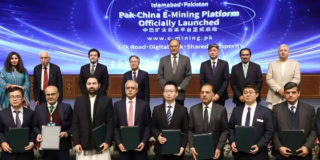In a groundbreaking and controversial step toward combating global warming, the UK government is investing £50 million in a geoengineering project designed to block a portion of the sun’s rays from reaching the Earth.
Scientists will conduct outdoor experiments as part of the strategy, launching aerosol particles into the stratosphere’s higher layers for solar reflection, a process known as Solar Radiation Management (SRM).
ARIA’s programme is inspired by real volcanic eruptions since these occurrences scatter reflecting particles into high altitudes, causing sunlight to bounce back into space and thereby cooling the planet. Scientists believe that scientific reproduction of volcanic aerosol cloud formations at a manageable scale may help reduce the worst effects of climate change.
“The uncomfortable truth is that our current warming trajectory makes several climate tipping points distinctly possible over the next century,” said Professor Mark Symes, leader of the ARIA programme. “We urgently need real-world data to evaluate whether solar geoengineering can serve as a viable tool in our climate response.”
Strict Controls and Community Involvement
According to ARIA, the upcoming experimental trials will be minimal in size, strictly examined, and will not emit any hazardous substances. Before carrying out any experiments, the organisation will do rigors environmental impact assessments and consult with nearby community members.
Despite its implementation safeguards, the project has received both favourable and negative feedback. Critics oppose geoengineering technology because of the projected environmental repercussions, which include changes in weather patterns and negative ramifications for farming methods. The deployment of these geoengineering programmes has some people concerned about their capacity to reduce human-caused climate change.
“Our role is to provide the most robust, unbiased evidence possible—without pushing an agenda for or against geoengineering,” said Kate Hamer, a NERC director.
Experts say this type of foundational research is critical for understanding the full implications of SRM and how it might be deployed responsibly.
Global Implications and Cautious Optimism
The UK’s geoengineering funding distinguishes out from other global expenditures since it amounts to a few hundred million dollars each year, positioning the Kingdom as a potential leader in this field as US backing declines. Professor Jim Haywood of the University of Exeter, along with other experts, suggests that large-scale deployment of SRM may become viable within the next ten years when its efficiency has been proven.
Dr. Sebastian Eastham of Imperial College London also highlighted the geopolitical significance of SRM. “Solar geoengineering will impact international relations,” he said. “This project must bring together global voices to assess the full scope of its consequences.”
Though SRM is not an alternative for emissions reduction, scientists believe it could serve as an emergency tool to buy time while the world moves towards nett zero targets.
As the climate crisis intensifies, the UK’s bold step into geoengineering may signal the beginning of a new era in climate intervention, one that is as promising as it is perilous.

 3 min read
3 min read


















